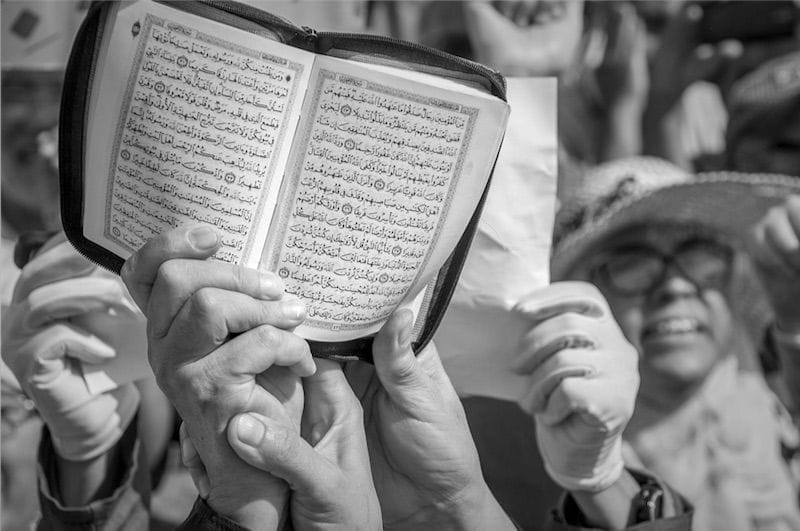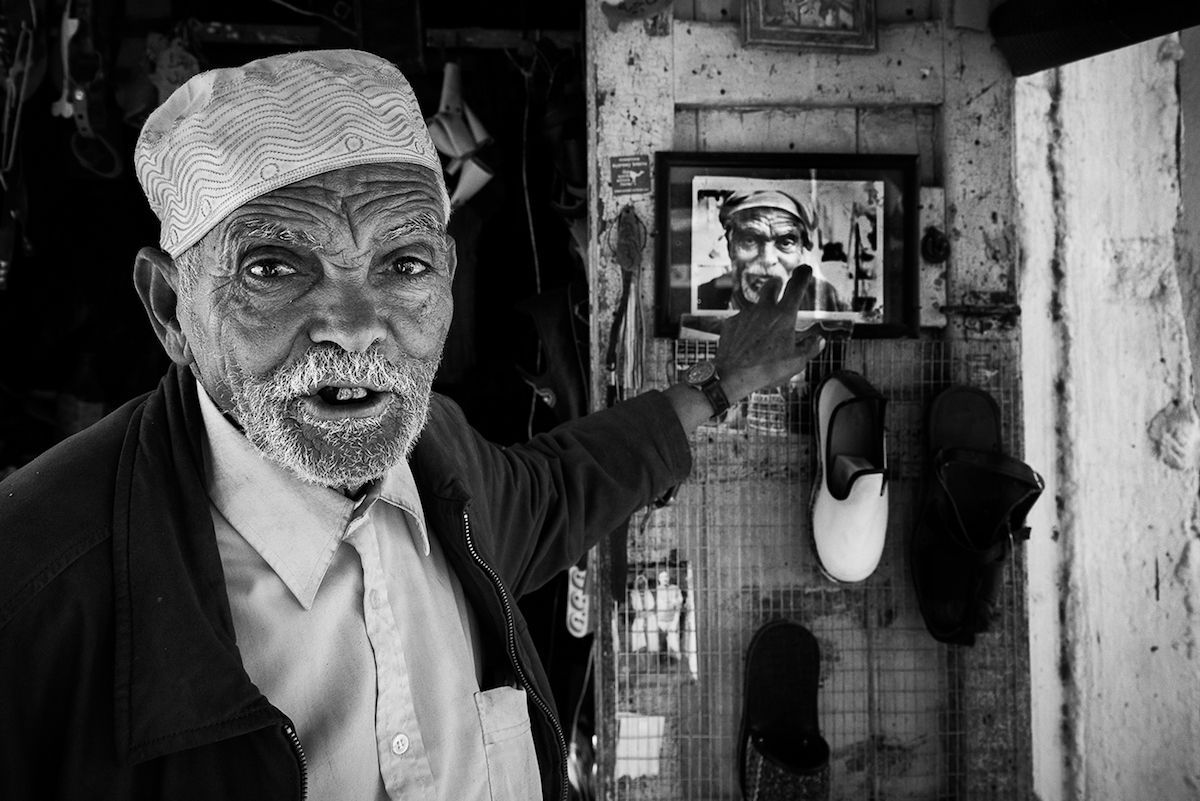In recent years an increasing number of academic works have focused on the progressive securitization of research conducted in authoritarian contexts (Peter and Strazzari, 2017; Glasius et al., 2017), including important reflections on the methodological and ethical challenges of conducting fieldwork in the Middle East and North Africa (Clark and Cavatorta, 2018). Post-revolutionary Tunisia may be less of a police state than other countries in the MENA region, as it falls in the category of post-authoritarian state. However, as a young and still fragile democracy, Tunisia has not yet accomplished a fully-fledged transformation of its ‘deep-state apparatus’, such as the judiciary system, police, bureaucracy and state security services. Moreover, some analysts have posited that the country is drifting back toward its old authoritarian reflexes, with revolutionary enthusiasm being progressively overshadowed by dangers of political polarization and an illusory nostalgia for strong and centralized government (ICG, 2018).
Securitization of the Tunisian Islamic ecosystem after 2014 and related methodological challenges
The political assassinations of secular activists in February and July 2013, terrorist attacks in Tunis and Sousse in March and July 2015, and the attacks by militants of the Islamic State in the southern city of Ben Guerdane at the border with Libya in March 2016 have opened up a new era of securitization of the Tunisian Islamic landscape, partially informed by the increasing criminalization of Islamic actors by secular forces, which has been given widespread coverage in the media. The state has banned the Salafist organization Ansar al Sharia, and restored control over mosques and activities which had been accused of being politically related to Ennahda and of causing the ‘wahhabization’ of Tunisian society.

In this context, conducting fieldwork on Islamic actors engaged in charitable and preaching associations could raise methodological challenges and ethical concerns. Most of such associations’ founding members are former militants of the Tunisian Movement of Islamic Tendency, imprisoned and/or tortured by the former authoritarian regime. Therefore, the Mukhābarāt (secret police) is always present in the calculations of militants contacted for interviews. Moreover, these actors have been subjected to the pressure of a renewed wave of state repression since 2014, when the Islamist party Ennahda stopped being the country’s primary political force. Religious associations then became the target of arbitrary police operations, which intended to verify the legality of their activities.
Because of this conflictual context, it is increasingly difficult to get in touch with religious associations. In particular, the campaign of criminalization against Islamic charities has led these actors to adopt a more cautious approach when presenting themselves to the public, including researchers. When interviewed, associative actors are reticent to talk about their reference to Islamic values and their embeddedness in any form of Islamic activism. This reticence is mainly due to the fear of being labeled as ‘politicized’ actors by the investigator. Indeed, the intense polarization of the national political landscape, the controversies raised by national media on the politicization of religious associations, and the act of discrediting particular associations with the accusation of accepting illicit international funding linked to terrorist conspiracies, have progressively created a context of de-legitimization of Tunisian religious associations. The effort of religious charitable associations is thus to invert this trend, presenting themselves as professionalized, non-religious and apolitical actors.
How to gain access to data?
The best way to obtain data in such a complex environment is to build trustful relationships with respondents through long-lasting immersive fieldwork. A grounded theoretical approach allows one to construct the research in a very inductive way through ‘neutral’ research questions, and not pre-constituted hypotheses which, in a perceived repressive political context, might annoy respondents or put them on guard. It also implies the usage of a set of ‘flexible’ methodological instruments for collecting and analyzing qualitatively ‘rich data’ (Mattoni, 2014).
The ‘soaking and poking’ procedure of investigation helps to secure access and build the trust needed for interviews (Leech, 2002). In particular, open spaces of conversation are an important source of data beyond official interviews, in order to set the respondents at ease, and avoid the pressure of formal questions, which could inhibit their answers. Indeed, during my fieldwork, informal encounters usually took place outside the association buildings, in locations such as cafés or even at interviewees’ homes, where they might feel less anxiety to legitimate themselves vis-à-vis the investigator (such as claiming the apolitical and professional nature of their association). Sensitive data on personal experiences of torture or repression under the old regime stemmed from these informal exchanges, which represented a sort of implicit pact of trust between me and my respondents.
The decision to undertake immersive fieldwork thus has certain implications, as it requires the investigator to plunge into the field and make choices regarding logistics (where should I live?), networking (with whom should I talk and form friendships?), and affiliation with field-based research centers (Western or local?). All these choices can be dilemmas that are likely to bias or jeopardize the outcomes of the research or raise security issues for the researchers and also for research participants. When I had to move outside Tunis for research purposes, my involvement in the field became total, as I could not rely on my own logistic resources, being permanently exposed to the willingness and agendas of my informants. After conducting several interviews I was often taken under the wing of associative members, who felt they were responsible for my security in the more sensitive areas of the country or simply because of their strong sense of hospitality. In these cases, refusing their invitations would have resulted in breaking the relationship of trust that I intended to build with them. This personal exposition occurred also through social media networks, for instance Facebook, which is also an invaluable tool of investigation in order to get ‘metadata’.
Ambiguity of ethical guidelines: the risks of written informed consents
Immersive fieldwork, and in some cases the difficulty of reciprocation, raised ethical concerns related to fieldwork on Tunisian Islamic activism. While certainly not the most desirable approach to research ethics, a certain degree of ‘deception’ was unavoidable to prevent my informants from becoming alarmed. Indeed, a full disclosure of my research framework would have jeopardized the validity of my research. Moreover, researchers should try to be mindful of the potentially extractive nature of their fieldwork and do their best to reciprocate, for example by giving something back (the outcomes of their research) in return for the time and effort that respondents devote to their project. However, this is not always possible, as in the case of the Tunisian context, where Islamic activists engaged in the associative field are reticent even in presenting themselves as religiously oriented.

So how fair is it to obtain data (even if for research purposes) on issues that interviewees do not always want to share with the interviewer? In recent years, academic review boards have been established in order to protect the ‘objects’ of study from the researcher, following the principle that research participants should be given as much information as might be necessary to make an informed decision on whether or not they wish to participate in a given study. Over the last five years the academic community has witnessed a great variance in the appropriateness and comprehensiveness of such procedures, from guidelines that are overly loose to those that are increasingly constraining. Indeed, while there is a general reflex among academics to consider ethical review as just another bureaucratic constraint, when well-designed, ethical reviews can be extremely useful in encouraging researchers to reflect on the ethical implications of his/her research at the stage of data collection (to obtain informed consent, think about how much disclosure is appropriate, protect privacy, keep data safe/secure) and of data analysis and writing (whether to share work in progress with local scholars and local administration; whether to leave/send data/products to local communities).
Unfortunately, when in place, such procedures still seem poorly equipped to deal with the challenges that emerge from doing social research fieldwork in more or less repressive contexts, by having a direct impact on what is researchable and what is not, and thus becoming really problematic. Indeed, this can come about in response to ‘one-size-fits-all’ procedures, without an understanding of the particularities of qualitative social science research in general, or of the specific challenges characterizing determined contexts.
Written informed consent forms containing personal information could be highly problematic in a context where Islamic grassroots organizations are struggling for their survival in a perceived repressive context. First, they can affect the safety of informants, who may become more visible to repressive measures after interviews. Indeed, activists can become particularly vulnerable to surveillance when they have contact with foreigners. In order to minimize the likelihood of unintentionally harming interviewees by requiring them to fill out such forms, it should be preferable to ensure their informed consent verbally without leaving a potentially compromising paper trail. Second, request of written consent with a full disclosure of the research framework might jeopardize the validity of findings. Indeed, it can limit the researcher’s ability to ask certain questions, and/or it can inhibit respondents. Last but not least, written informed consent may jeopardize the safety of the researcher: interviewees might feel trapped or become confused about the researcher’s status and role. This would leave space for misunderstandings, or raise respondents’ psychological barriers, thus undermining trustful relationships built over months of immersive fieldwork.
As stated in the Clark and Cavatorta-edited textbook, “while we are yet to reach this point as a community of scholars, it is crucial to remind the institutions we work for, that ethical behavior cannot be captured simply with a signature on a piece of paper and that behaving ethically might actually mean challenging the very document we and other participants are asked to sign” (Cavatorta and Clark, 2018: 19). Hence the need to adopt a reasonable flexibility by formulating alternative ways of negotiating access to the field, informed by a good knowledge of the specific context under study. Notably, ethical guidelines tailored according to the context’s political specificities would be desirable in order to mediate between a full disclosure of the research framework and the complete awareness of the respondents, with an aim of complying with the principle of not harming research participants, nor compromising the validity and outcomes of the research.
References
Clark, J. A., & Cavatorta, F. (eds.). (2018). Political science research in the Middle East and North Africa: methodological and ethical challenges. Oxford University Press.
Glasius, M., De Lange, M., Bartman, J., Dalmasso, E., Lv, A., Del Sordi, A., ... & Ruijgrok, K. (2017). Research, ethics and risk in the authoritarian field. Springer.
International Crisis Group (ICG), Stemming Tunisia’s Authoritarian Drift, Report n. 180, January 2018.
Leech, B. L. (2002). Asking questions: Techniques for semistructured interviews. PS: Political Science & Politics, 35(4), 665-668.
Mattoni, A. (2014). The potentials of grounded theory in the study of social movements. In D. della Porta (eds.), Methodological practices in social movement research, Oxford University Press, Oxford.
Peter, M., & Strazzari, F. (2017). Securitisation of research: fieldwork under new restrictions in Darfur and Mali. Third World Quarterly, 38(7), 1531-1550.
Acknowledgements
Photos from the collection "Through The Tunisian South" by skander khlif is licensed under CC BY-NC-ND 4.0
